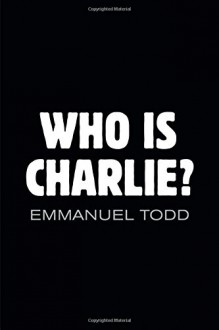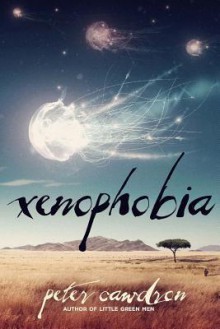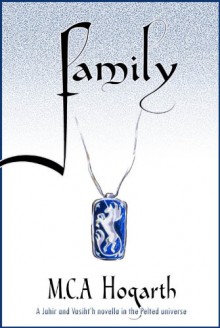My thoughts on this week's Brexit vote.

(reblogged from Sorry Television)
Americans are enamored with assimilation. After all, if our country is the best, the greatest, the most spectacular in the world, then why wouldn’t its newest residents want to be a part of that? Who doesn’t want to fit in with The Best?
But when we demand that immigrants assimilate, what are we really asking them to get on board with? Chain stores and fast-food restaurants? Income-inequality and underhanded racism? We want immigrants to learn our culture, but only a fraction of American culture isn’t appropriated from somewhere else. We want them to learn English, to ensure that their kids fit in with our kids, but it’s our kids, American kids, who are bombing in test scores against students in other countries. We act like the path to assimilation is laid out in lights, warm friendly lights—but in practice it’s a difficult road with plentiful setbacks. And at the end of it? Well then you’re an American. Gone are the head scarves and exotic foods of your past life, swapped out for fanny packs and frozen chicken nuggets. Assimilation to many Americans means not mutual respect for myriad cultures, but sameness. For a country so embroiled in its own partisanship, in its own divisions and drawing of battle lines, methinks we spend far too much time expounding self-righteously on the importance of cohesion.
There are a few endgames to this kind of aggressive insistence on cultural (or religious or national) unity, none of them pretty. Assimilation can be forced, at a government level, through bans and regulations that chip away at the traditions of a particular culture. Or assimilation can be won (or lost) through fear, through a zeitgeist of intolerance that suggests otherness is to be avoided, otherness is potentially dangerous, otherness should be shamed. In this worldview, allowing otherness means diluting us.
Anders Breivik saw himself as a warrior on the front lines against dilution. As founding member and self-proclaimed “knight Justiciar grand master” of a Knights Templar outfit dedicated to fighting multiculturalism, the “Islamization of western Europe” and the reign of “cultural Marxists,” Breivik felt about Norway in the early 2000s the way Donald Trump feels about America now: There are too many immigrants, too many Muslims. The country is in trouble; the liberals are putting it there. Norway needed to be made Great Again.
When a bomb went off outside the prime minister’s office in Oslo on July 22, 2011, the media and the Norwegian people assumed it was a terrorist attack; many assumed it was al-Qaeda. The bomb killed eight people, and might have killed more, had two errant trucks made it impossible for Breivik to park his explosive-laden van in the ideal direction.
Less than two hours after the explosion, the first reports came in of a gunman on Utøya, a small island in the Tyrifjorden lake. Utøya is owned by the Workers’ Youth League (Arbeidernes ungdomsfylking, or AUF), the youth wing of the country’s Labour Party. On the afternoon of July 22, a man dressed as a police officer was walking around the island systematically shooting teens assembled there for the AUF’s annual summer camp. The earliest reports of the shooting—which lasted for more than an hour before the actual police arrived—estimated the dead at around 10. It would ultimately prove to be 69, mostly teenagers, some as young as 14. When the police finally reached the shores of Utøya, it didn’t take them long to spot Breivik, who by that point had already called them himself, twice, to surrender. Breivik dropped his gone, and lay on the ground to be handcuffed. After months of planning and hours of killing, he’d finished his task.
Murdering so many, enough to provoke nationwide outcry, was Breivik’s plan all along. We know this, as well as extensive details about how he made the bomb that went off in Oslo. We know that Breivik’s terrorism trial, in which he received the maximum 21 years, was what he called phase two, an opportunity to “denounce the Marxist world hegemony” and position himself as a living martyr. We know that phase three takes place in prison, where Breivik plans to “establish a pan-European prison alliance of militant nationalists.” (Good luck without Internet.)
We know all of this because Breivik kept a detailed log of his July 22 preparations, and because in conjunction with his attack on Norway he released a 1,500-page manifesto and accompanying propaganda video, outlining his political views and his personal opinion that he, the knight Justiciar grand master himself, was best positioned to lead the new world order. And we know all that because of Åsne Seierstad, who pored through both documents—as well as police interviews, court records, witness statements and interviews with survivors and with victims’ families—to write One Of Us: The Story of Anders Breivik and the Massacre in Norway.

Disclaimer: ARC via Netgalley.
When PEN decided to award Charlie Hebo a freedom award, it led to some PEN members withdrew from the dinner and presentations in protest. They saw the magazine/newspaper as racist. This led to a quasi public spat that included authors like Rushdie, whose point you can’t only defend that which you don’t object to is valid. But it also raises the question of you should know what you objecting to and who you are supporting.
In many ways, this is the point of Todd’s book. The title question is targeting those who marched in support of the paper, and the book itself isn’t about free speech rights as it is about France’s current political and social divisions.
This means that if you are reading the book for a blow by blow account of the attacks or a freedom of speech discussion, you are going to be disappointed. Todd’s analysis, however, does take into account the attack on the Jewish market as well, and it is also ties into the current refugee crisis.
It is this last bit, unintentional it must be, that in many ways seems the most important. Watching the news broadcasts, a viewer notices that some Europeans are welcoming and some are not. It is understandable, if only from an economic view, why some governments are hesitant about welcoming over 5,000 people in a single day. What is interesting is the view that is sometimes subtly transmitted that the refugees are poor and uneducated, terrorists in waiting. While the charge of poverty must be true for some of the refuges, one should wonder. For instance, how come it seems so easy to find those refugees who speak English? Doesn’t that imply education? If it costs a large sum of money to make the journey then doesn’t that mean that more middle or lower middle class groups? (Because the rich would have already left).
This is touched on in part in the book. Part of Todd’s point seems to be the question of assimilation, what the term actually means. Todd considers what it means to belong French society means. Does it mean adopting French values and beliefs that according to some of the data presented in this book aren’t even currently used by the real French. This value group is very vocal and votes. It keeps outsiders out. The press and politicians play to it.
SO it’s the tea party, I think.
It also enforces the status quo and keeps those who are different as second class citizens or dominated religions. This, in turn, leads to more division. It also leads to compliancy. And then it ties to the rise of Anti-Semitism because of this division.
At least, I think that’s the point I could be reading it wrong. The translation could be off.
The point is also whether something or a group that is exclusive pretending to be inclusive. Which is also a good point. If anything Todd’s book is about knowledge.
 My full Xenophobia audiobook review can be found at Audiobook Reviewer.
My full Xenophobia audiobook review can be found at Audiobook Reviewer.
After reading several Jahir and Vasiht'h short stories and vignettes, I was happy to see that this was novella-length – I seem to like Hogarth's longer works more.
Jahir and Vasiht'h have now been working together for 10 years or so. Their partnership is a comfortable one, but, because of the Veil and Eldritch xenophobia, there are lots of things Jahir has never been able to tell Vasiht'h. In Family, this changes. One of Jahir's cousins is getting married, and Jahir's mother specifically asked that Vasiht'h come with him as a guest. Aliens are not welcome on the Eldritch homeworld, but Jahir figures his mother has her reasons, so he and Vasiht'h set off to attend the wedding.
Like Vasiht'h, I was excited at the thought of finally getting to see the Eldritch homeworld. All I knew for sure was that it would be technologically backward – no showers, horses used for transportation, no medical technology to speak of. I figured that meant it'd be some kind of pseudo-Middle Ages Europe.
Life in the Galare manor was much like I expected it to be. There were a few mentions here and there of servants, although I never got to learn as much about them as I would have liked. The real surprises came when Vasiht'h visited a town near the manor. It was...worse that I expected. While this new information certainly put Jahir's desperation to leave his homeworld and learn something that might help his people in a new, starker light, my suspension of disbelief was strained. I honestly don't understand how Eldritch civilization has survived for as long as it has, and I'm still not sure I can wrap my brain around what an Eldritch commoner's life must be like.
The primary reason I picked Family up was because of Jahir and Vasiht'h and, in that area, I was rewarded. Their relationship in Mindtouch was, for the most part, amazingly smooth and easy. The events in this novella put more strain on their relationship than I've seen in any other work they've been in.
First, there were Vasiht'h feelings of awkwardness and embarrassment around most of the other Eldritch. He didn't know how to act, he didn't know what they were saying unless he was near enough to Jahir to make use of their mindline, he was under-dressed compared to them, and his very existence was looked down upon. Second, Jahir himself made Vasiht'h feel awkward. He was painfully aware of Jahir's wealth and status, in a way he'd never been before. Third, there was a lot going on that Jahir hadn't given Vasiht'h any warning about, and Vasiht'h being there made some of it worse. And fourth, there were repeated reminders that Jahir would likely outlive Vasiht'h by hundreds of years. Vasiht'h was forced to think about their partnership in the long term and how he wanted things to go past the point of his own death.
Some of this was stuff that had occurred to Vasiht'h before, but that he hadn't sat down and really thought about, and some of it came as a shock. In any case, all of it kept Vasiht'h unsteady, and Jahir couldn't do much to help him and comfort him, because he was busy being an Eldritch noble about to attend a wedding scattered with political eggshells. They spent more time separated than I expected, although it did make the “you and me, we're still okay” moments even sweeter.
While it was nice to recognize bits and pieces of other Jahir and Vasiht'h works in this one, it was also distracting. My brain kept looking for inconsistencies and continuity errors. The most jarring moment was when it was revealed that Sediryl, Jahir's cousin, probably played a part in Jahir's decision to leave his homeworld, because of his intense, secret, and forbidden feelings for her. She was passionate, fierce, and fun to read about, but Jahir's reaction to her inspired vague continuity unease in me. I remembered Jahir desperately wanting to get away from his homeworld's stagnation, but that was it. I did a quick keyword search of Mindtouch and found several mentions of Sediryl that I had forgotten, but none of the depth of emotion I would have expected the name to conjure up in Jahir, considering his reaction to her in this novella. I'm not sure if this is some kind of character continuity issue or not – I'd have to reread Mindtouch to be sure – but it bugged me.
Although I felt it had some issues, I still really liked Family. It had several of the elements I've come to love in Hogarth's works: fascinating details about alien cultures, characters I care about, and great conversations.
Rating Note: I struggled with choosing a rating for this. I wanted to give it 4 stars, because it was so nice to see Jahir and Vasiht'h having to deal with their own relationship, personal, and family issues again. At the same time, 3.5 stars seemed more appropriate for the overall story. I decided to give the characters more weight and give it 4 stars. Booklikes and LibraryThing's half stars are making me greedy - now I'm beginning to want quarter stars.
(Original review, with read-alikes and watch-alikes, posted on A Library Girl's Familiar Diversions.)